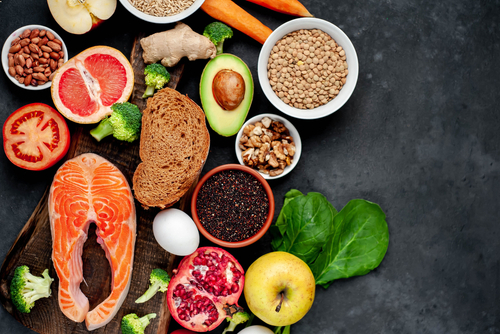We all need to eat in order to live, but not all food is created equal—and since our diet is so important to our body’s functions, it’s important to consider what we’re putting into it. Food provides us with energy and nutrients necessary for growth and repair, allowing us to stay healthy and well-protected against illness. In our latest free webinar, Susan Eichorst, PA-C, MMSc, discusses the importance of food labels, how to read them and how to choose the most high-quality food. Here are some ingredients to watch out for:
Hydrogenated oils
Hydrogenated oils are used in a number of foods to extend shelf life and lower production costs. Hydrogenation is a process through which manufacturers add hydrogen to a liquid fat to turn it into a solid fat at room temperature. These oils lower high-density lipoprotein (HDL), also known as your good cholesterol, and increase low-density lipoprotein (LDL), also known as your bad cholesterol. It can also increase your risk of cardiovascular disease. Some hydrogenated oils contain a large amount of trans fat or Omega-6 fatty acids, which can cause inflammation in the body.
Artificial colors
Many food products include food dye in their ingredients list, like cereal, fruit snacks and other sweets. You may be surprised to find out that artificial food coloring is also used in products like pet food and meat products. Only a few of these dyes have been tested, so we have relatively limited information about the long-term effects of these products. The studies that have been conducted on certain food dyes came back inconclusive, but some have shown links to certain types of cancer.
Sodium phosphates
While phosphorus is a healthy mineral found in protein-rich foods and is necessary for your kidney, bones and muscle health, phosphate is the inorganic form which is used as a preservative in processed foods. As a preservative, it acts as a thickening agent. It also functions as a curing agent for meat and an emulsifier to stabilize oil and water, thus increasing shelf life. Our bodies absorb 30-60% of natural phosphorus and 90% of manmade phosphate; having this excess of phosphate in your diet can be harmful, particularly if you have kidney disease. It can also increase your risk of cardiovascular disease.
Carrageenan
Although it’s a common additive in a wide variety of foods, carrageenan has no nutritional value. It acts as an emulsifier, keeping milk in suspension in products like organic yogurt, dairy, non-dairy alternatives and even baby formula. Since the ingredient is derived from red seaweed that naturally occurs in the wild, it can be labeled “natural” on food products. However, animal and cell studies have shown that carrageenan can cause inflammation in the gut and intestines. This is a clear risk, especially for those who are dealing with conditions like IBS or Crohn’s.
Sodium nitrates and nitrites
Nitrates and nitrites are another set of ingredients that are found naturally in many vegetables and are largely beneficial. They are usually added to cured meats, such as bacon, ham and sausage, to prevent bacterial overgrowth, add a salty taste and improve the appearance of the meat. While nitrates and nitrites are fairly harmless in their naturally occurring form, oral and gastro-intestinal enzymes in the body can convert nitrates into nitrites, which can either be healthy or harmful depending on the type they develop into. Nitrites are beneficial in the form of nitric oxide but can cause harm if they develop into nitrosamines. Nitrosamines are formed when nitrates and nitrites are heated at high temperatures, as with grilling, and are also found in tobacco smoke.
Making healthier, smarter choices for yourself and your body starts with YOU. Ready to reclaim your health and make better choices at the grocery store? Watch the full webinar today and reach out to the BESANA Health & Wellness team by calling 303.327.7300 or requesting a consultation online today.
